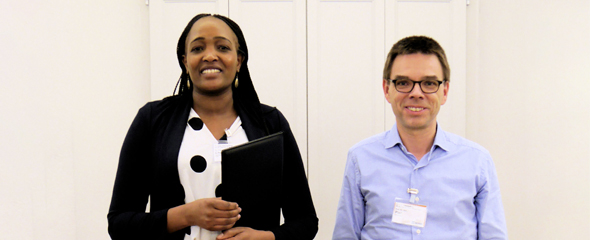Biofilms are surface-adherent aggregates of bacteria that are embedded in a slimy matrix, in which the bacteria protect themselves against the immune system or by antibiotics. Infections with these bacteria are therefore particularly difficult to treat. The microporenic acids discovered by Chepkirui can, for example, dissolve biofilms of the hospital germ Staphylococcos aureus without killing the bacteria. In addition, Chepkirui isolated more than 50 other active substances. The search for new anti-infective agents frequently has scientists turning to nature, where fungi and bacteria have proven to be a particularly valuable resource.
Clara Chepkirui feels extremely honoured to have received the award. “It is a great recognition of my scientific achievements and as a young scientist it motivates me for the future,” Chepkirui says. She also experiences her win as a great success for the whole research department.
For her future research projects, Clara Chipkirui will continue to focus on natural products at the interface between biology and chemistry. “I will be aiming to identify pharmacologically relevant and also to understand how they are formed in microorganisms.”
Original publication
Chepkirui C, Yuyama KT, Wanga LA, Decock C, Matasyoh JC, Wolf-Rainer A, Stadler M (2018). Microporenic Acids A-G, biofilm inhibitors and antimicrobials agents from the basidiomycete Microporus sp. J Nat Prod 81:778-784.

